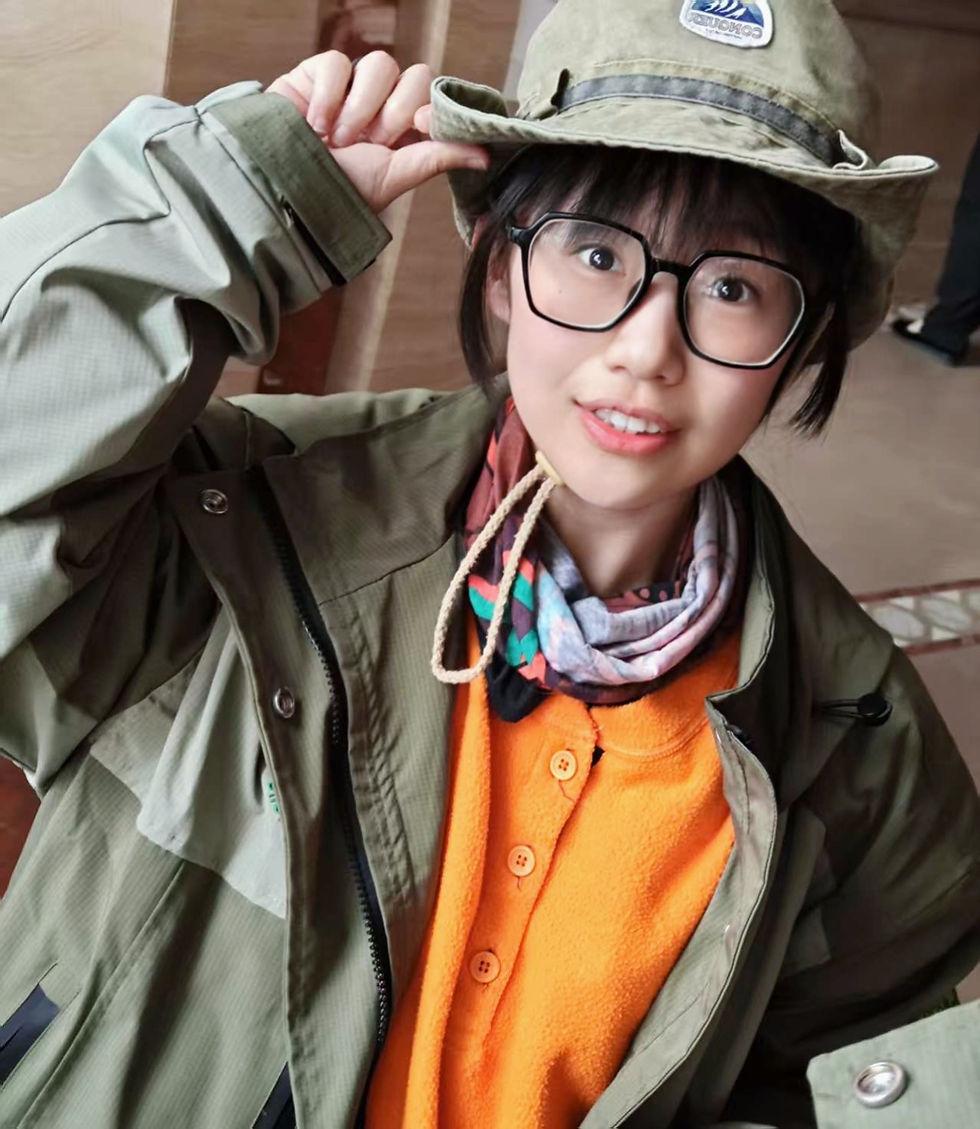Roots, Shoots, and the Work That Grows Between
- Lynn Fu
- Aug 24, 2025
- 3 min read
When Rebecca first stepped into a university club meeting almost two decades ago, she didn’t know she was walking into the rest of her life. She had enrolled at Shanghai International Studies University to study English, but her real loves were the natural world — plants, animals, and the quiet language they speak. Roots & Shoots, with its energy and sense of purpose, pulled her in. She joined the student chapter, visited the Shanghai office for meetings, and thought: This is fun. This is real. After graduation, a job posting of Roots & Shoots appeared, and she never looked back. Nineteen years later, she’s still there.
Part of the reason is the work itself — flexible, built on trust, with space for her initiative to take root. But part of it is the mindset she’s cultivated.
“You need to love this kind of work,” she says simply. Curiosity about charity, patience with people, and strong communication skills are essential. English helps, of course, as Roots & Shoots is international, but so does something less obvious: the ability to listen across cultures. Her literature studies may not have taught her how to plant a garden, but they taught her how to see from someone else’s point of view — a skill that makes her both a better educator and a more generous colleague.
One of the projects closest to her is the organic farm program, which she received from a former colleague. The idea began far from Shanghai, in the fields of Inner Mongolia, where an American founder of the Shanghai office, Tory, was planting trees with a friend from an outdoor brand. Over a meal of tomato and egg stir-fry, they asked a child where tomatoes came from.
“From the supermarket,” the child answered confidently. Asked if tomatoes grew on trees or the ground, the child shrugged: it didn’t matter, as long as they tasted good. The adults were stunned — and donated funds for Roots & Shoots to teach students where food comes from and how to grow it safely.

When Rebecca explains organic farming, she starts with the basics: no chemical fertilizers, no herbicides, no genetically modified seeds.
“Too much fertilizer will change the soil’s pH, killing microorganisms,” she says. The farm’s activities are designed to make these concepts real — children pull weeds themselves, plant mixed crops to repel pests naturally, keep nature journals, and make leaf prints.
But she admits, with a laugh, that after 19 years of running the farm, most students remain “scholars who grow vegetables only on paper.” They attend workshops and receive free seeds and manuals, yet only a fraction of the seeds ever sprout. Still, the effort matters.
The work isn’t without strain. NGO funding is unstable, with a high staff turnover rate, and project budgets are often only secured year to year. Rebecca has learned to be not just an educator but a storyteller, finding ways to move donors’ hearts so that projects can continue.

Her own inspiration comes from the organization’s founder, Jane Goodall, whom she’s met several times. Rebecca describes her as “a spiritual leader” — vegan, tireless, over ninety years old, and still traveling the world to speak. At one event, Goodall stood on a soft cushion for over an hour so the audience in the back could see her better.
“She’s really working like a workaholic for the good of the world,” Rebecca says.
Asked about her proudest achievement, Rebecca recalls creating a second textbook for the Organic Farm program, alongside an intern. Unlike the earlier translated edition, this one included a planting calendar tailored to local seasons — a guide not just to theory, but to timing and life cycles. It’s a small thing, perhaps, but like the seeds she hands out, it’s meant to take root somewhere in the future.
Nineteen years in, Rebecca’s work is still about growth — of plants, of children, of understanding between people. She knows not every seed will sprout. But in a world that often forgets where its tomatoes come from, she keeps planting anyway.



Comments